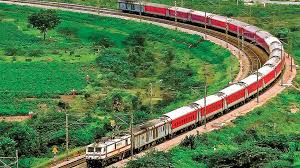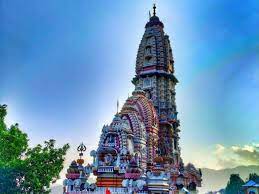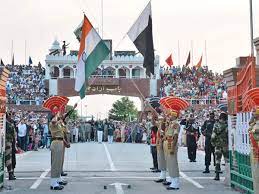THE ANTIQUITY OF GATEWAY OF INDIA

The gateway
of India is a historical monument. This gate is located on the beach in Colaba,
south of Mumbai. The hotel which is located right opposite of Gateway of India
is The Taj Mahal Palace. This
monument is located at the port of the Arabian Sea in the Apollo Bunder area of
South Mumbai. The height of this gate is about 26 meters (85 ft). It is called
the gateway of India for ships, boats, etc. coming from the sea route of the
Arabian Sea. This gate was used as a welcome for the guests coming from the
west. There is also a facility of ferry service for the tourists here for sea
excursions. Your trip to Mumbai is incomplete without a photograph with the
Gateway of India in the background. It is one of the highly visited tourist
places in Mumbai. The foundation stone of the Gateway of India was laid by the
Governor of Bombay. It was built in memory of King George V and Queen Mary on 2
December 1911 on the occasion of their arrival. It was completed in the year
1924. It has 4 minarets and a fine mosaic carved on stones. Only about 21 lakh
rupees were spent on the construction work of its dome. Yellow stone was used
to build the entrance. Its construction is a unique example of the architecture
of both cultures.
The Gateway
of India is built towards the vast Arabian Sea and is connected to Marine
Drive, another attraction of the city of Mumbai. It is a road that runs
parallel to the sea. This grand monument is visible at night; its huge
reflection can be seen in the seawater. People from all over the world come to
see it because it reflects the culture of Mumbai city. The Gateway of India is
a unique example of a historical and modern cultural environment. You can come
here any time of the year. But the time between November to March is the best
time to experience the atmosphere here. The weather in Mumbai is more pleasant
during these months. The Gateway of India is open throughout the week and
month. There is no ticket or fee to go here. Gateway of India opens at 7 am and
closes at 5.30 pm. This place is generally famous for its fascinating
photography, good places to visit, and its history.
NEARBY TOURIST ATTRACTIONS
1. COLABA CAUSEWAY MARKET
Prepare to
be rowdy as you shop the streets of Colaba Causeway. Surrounded by old
buildings from the British era, the Causeway paints the contrasting colors of
new-age lifestyle trends among older structures. You can buy clothes from here
at very low rates. There are many fashionable boutiques and buildings from the
British times which are the center of tourist attraction. You can go shopping
from here at various fashion stores and boutiques like Orange, Bombay Electric,
Attari, Silver House, and more. Instead of roaming around the Gateway of India,
this market is also included in it.
2. ELEPHANT CAVE
The Elephant
Caves are located very close to the Gateway of India. From this, tourists can
travel by motor boat to reach the Elephant Islands. Statues of Swami
Vivekananda and Maharaja Shivaji are installed at the entrance of the Elephant
Caves. The Taj Mahal Hotel here is the most prestigious and luxurious hotel in
India. It is located very near to the Gateway of India.
3. NEHRU SCIENCE CENTER
Tourists can
witness art programs, science exhibitions, and some international-level events
at the Nehru Science Center. If you are a person with a sense of science. Then
you will definitely like this place. It is one of the four national-level
science museums. And out of that is the headquarters of the western region. You
feel very proud to see this place.
4. WALKESHWAR TEMPLE
This
Walkeshwar temple, popularly known as Baan Ganga Temple, is located near
Malabar Hill in South Mumbai. It is also the highest point in the city. There
is a small pond near the temple. Its name is Bangangatank. The story of this
temple is related to Ramayana and is taken from a story related to the legend
named Baan Ganga. The temple is very crowded on new moon and full moon days.
Chatrapati
5. SHIVAJI MAHARAJ VASTU MUSEUM
Established
in 1900, this is a famous museum in Mumbai. The primary purpose of establishing
the museum was to welcome the visit of Edward VIII and the Prince of Wales to
India. This place is located near the Gateway of India. Earlier the museum was
known as the Prince of Wales Museum of Western India but has been renamed Chatrapati Shivaji Maharaj Vastu Sangrahalaya in 1998.
You may like post

HIDDEN INDIAN SITES WORTHY OF UNESCO
Exploring India’s Sites That Should Be on the UNESCO World Heritage List

EMBARK ON A DIVINE JOURNEY TO ICONIC RAM TEMPLES THIS RAM NAVAMI
Exploring the Pilgrimage to Renowned Ram Temples in India During Ram Navami








